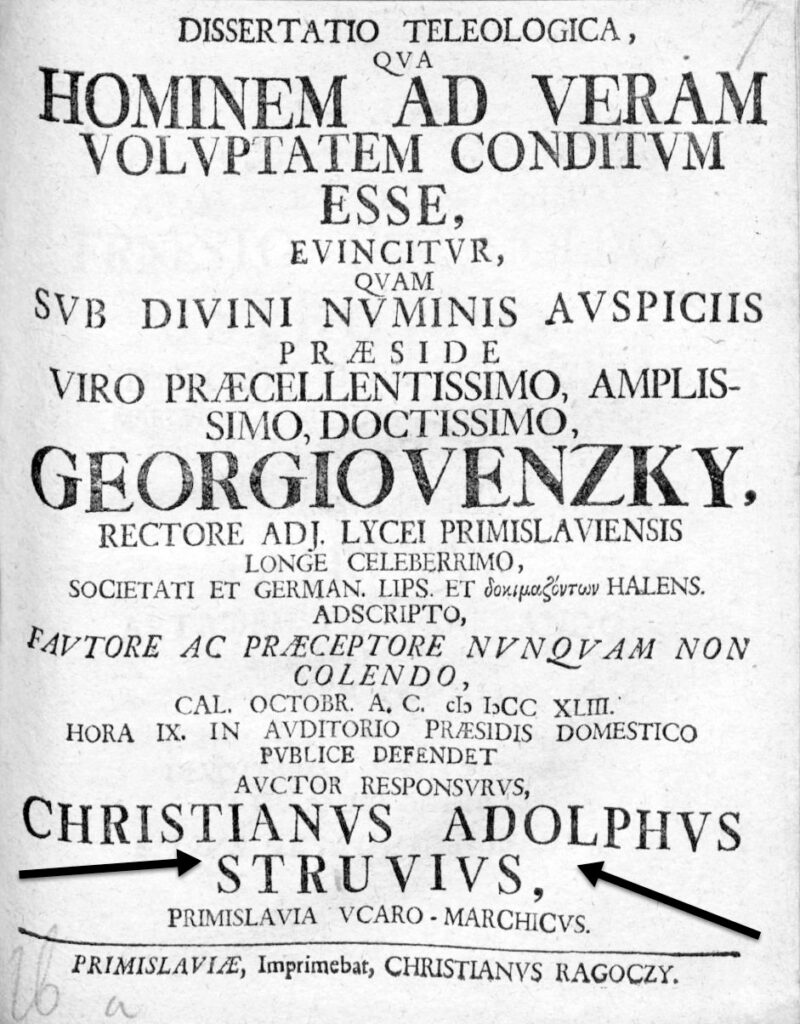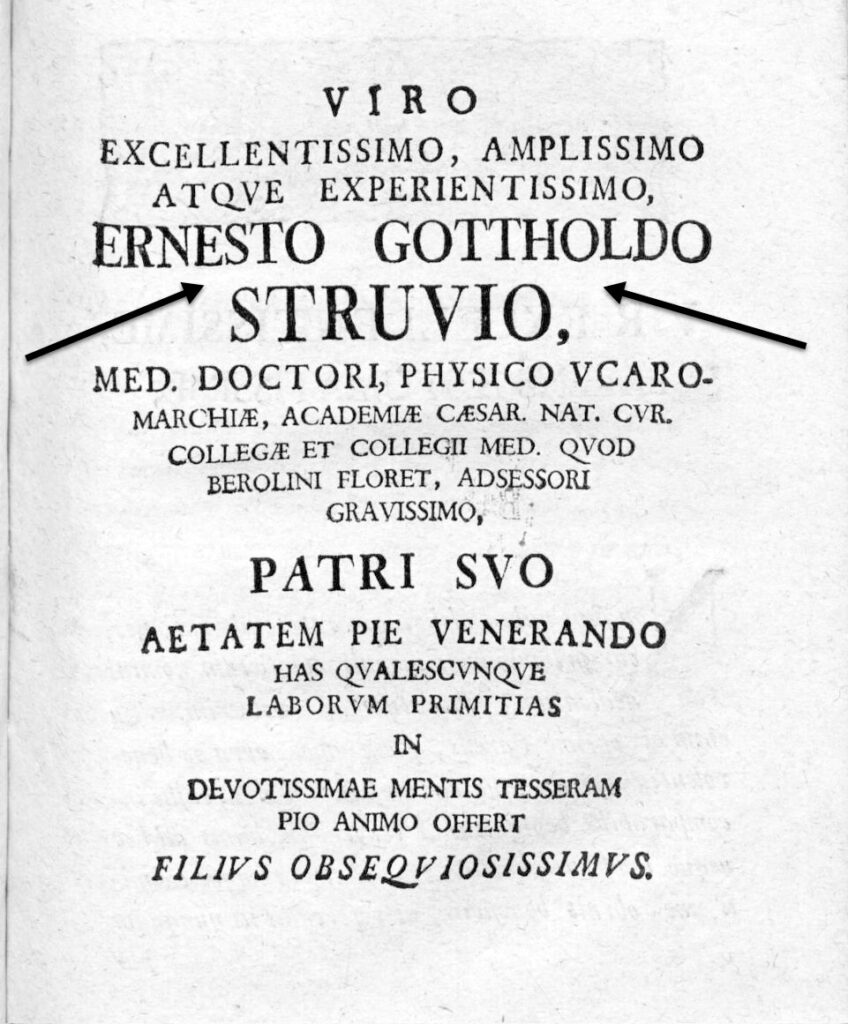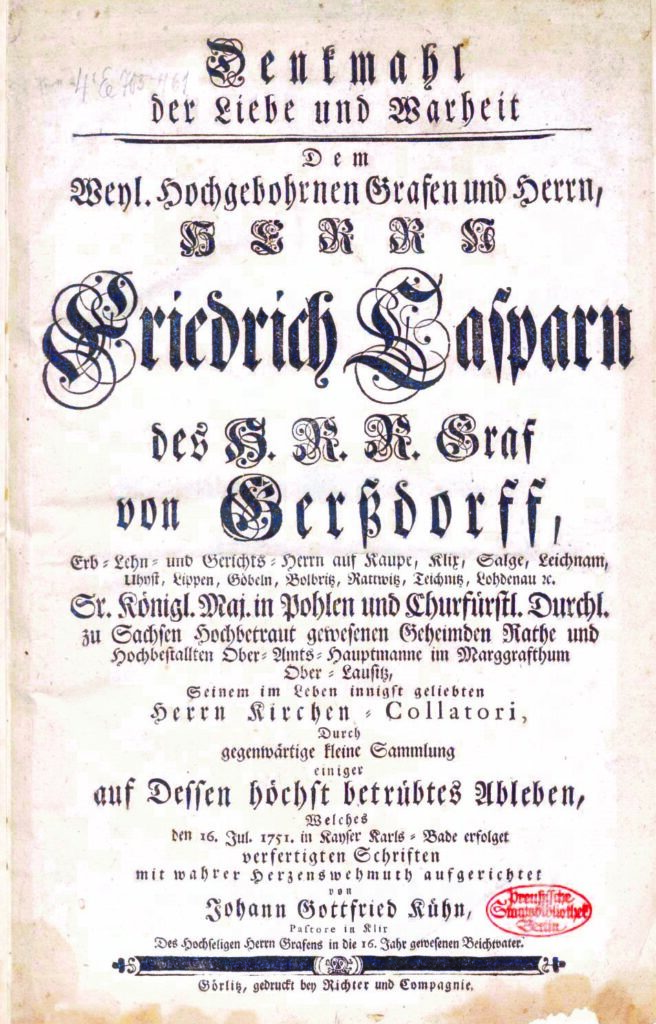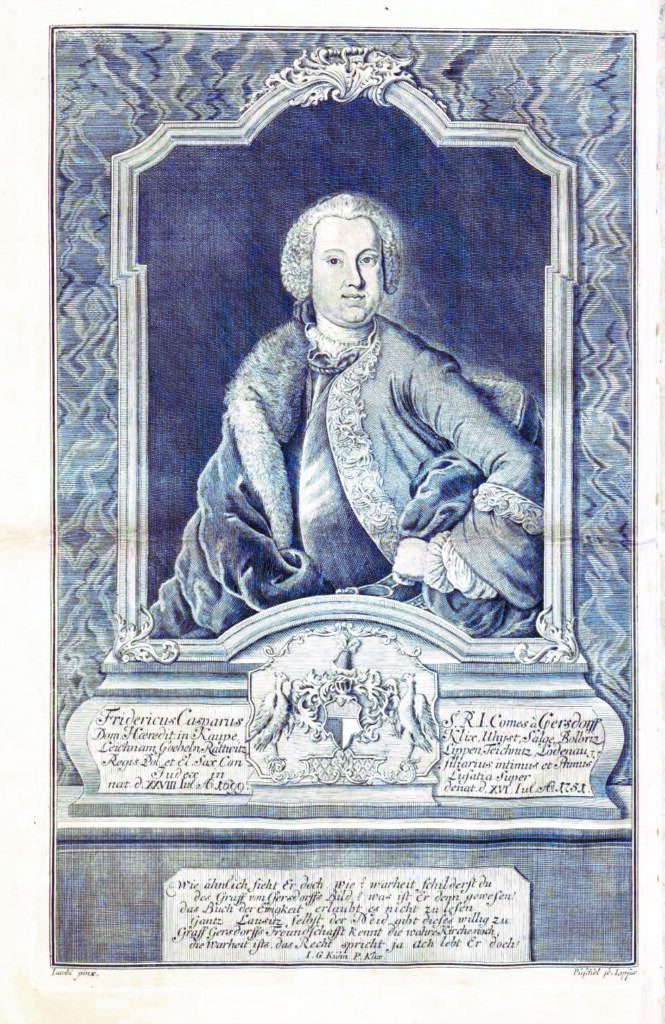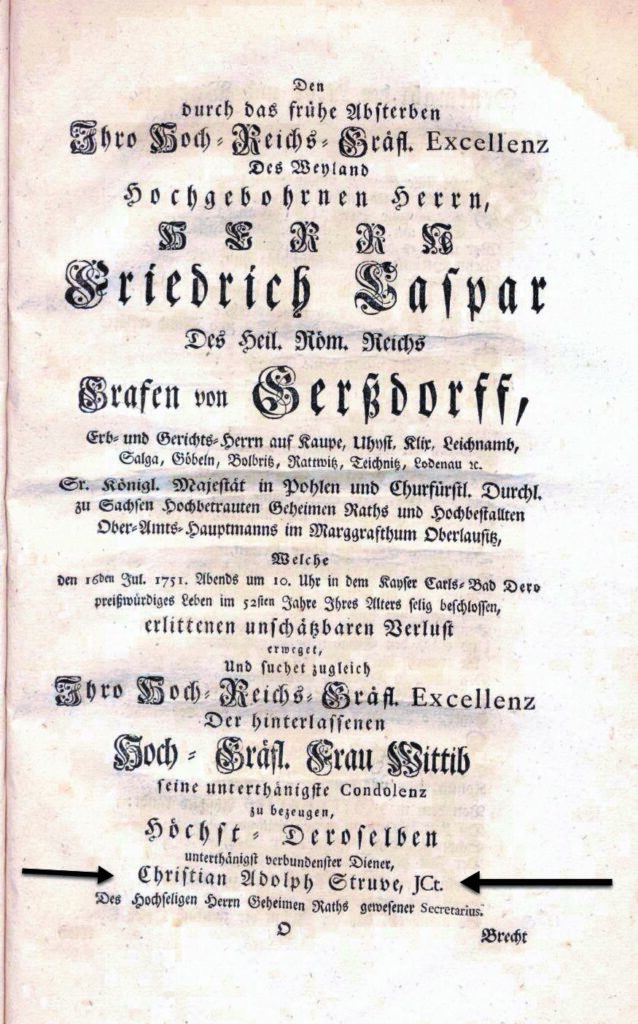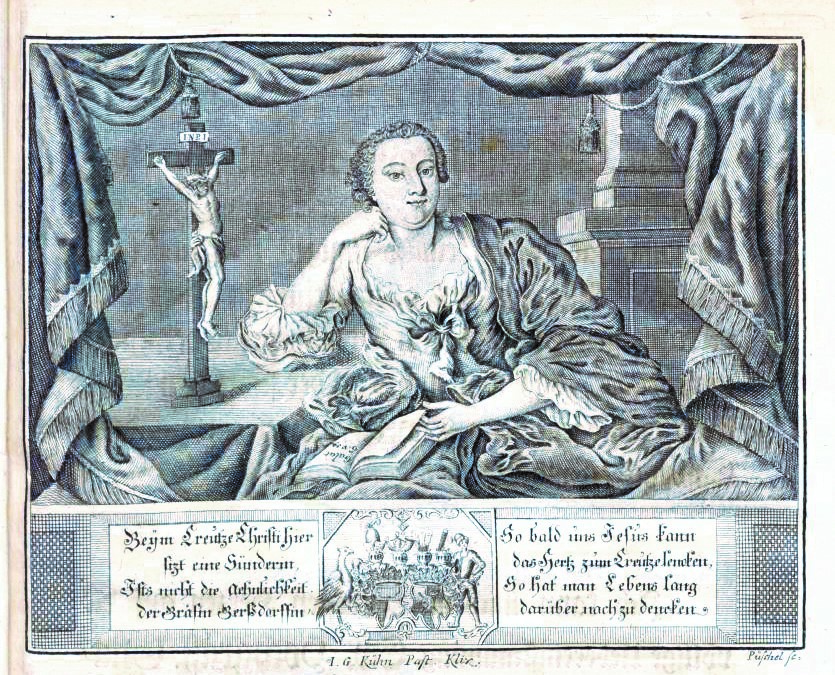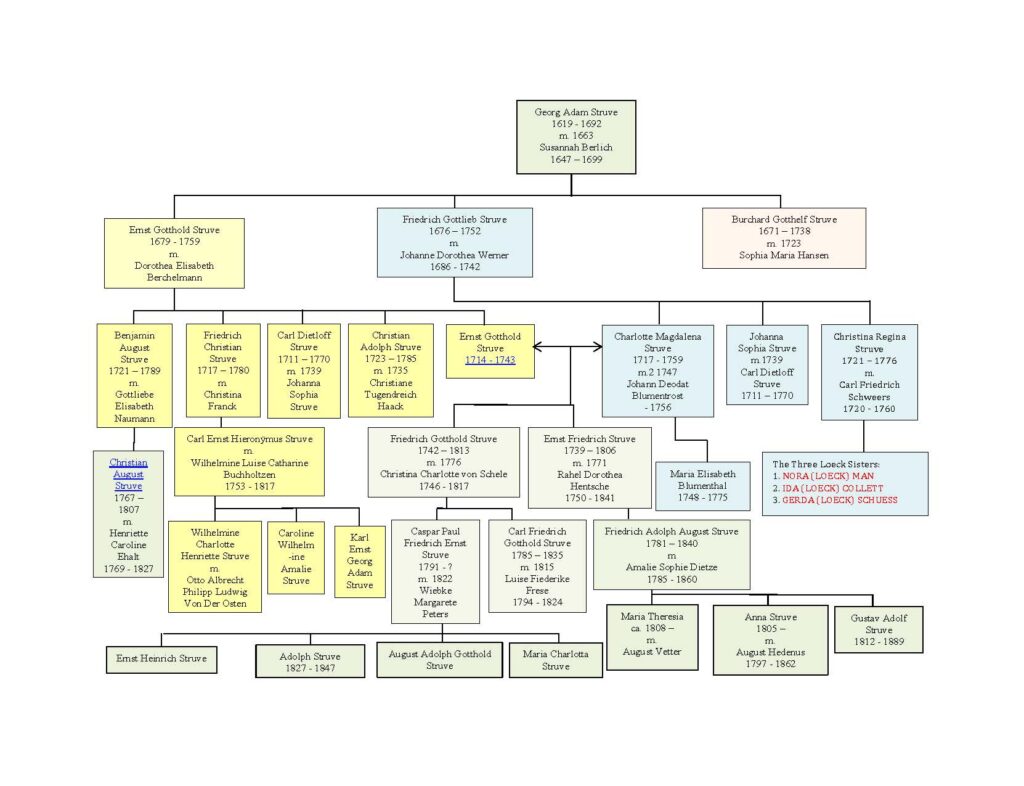Christian Adolph Struve (1723 – 1785) was the son of Ernst Gotthold and Dorothea Elisabeth (Berchelmann) Struve (not shown on charts).
His brothers were:
In 1743 he included a life of his father in Dissertatio Teleologica, Qua Hominem Ad Veram Voluptatem Conditum Esse …
In 1752 at the University of Leipzig Christian Adolph defended his law dissertation Mercaturae legum ferendarum auxilio juvandae ratio salutaris under the examination of Christianus-Gotthelf Gutschmid.
In 1754 Diss. inaug. iur. de principali beneficio in concedendis privilegiis …
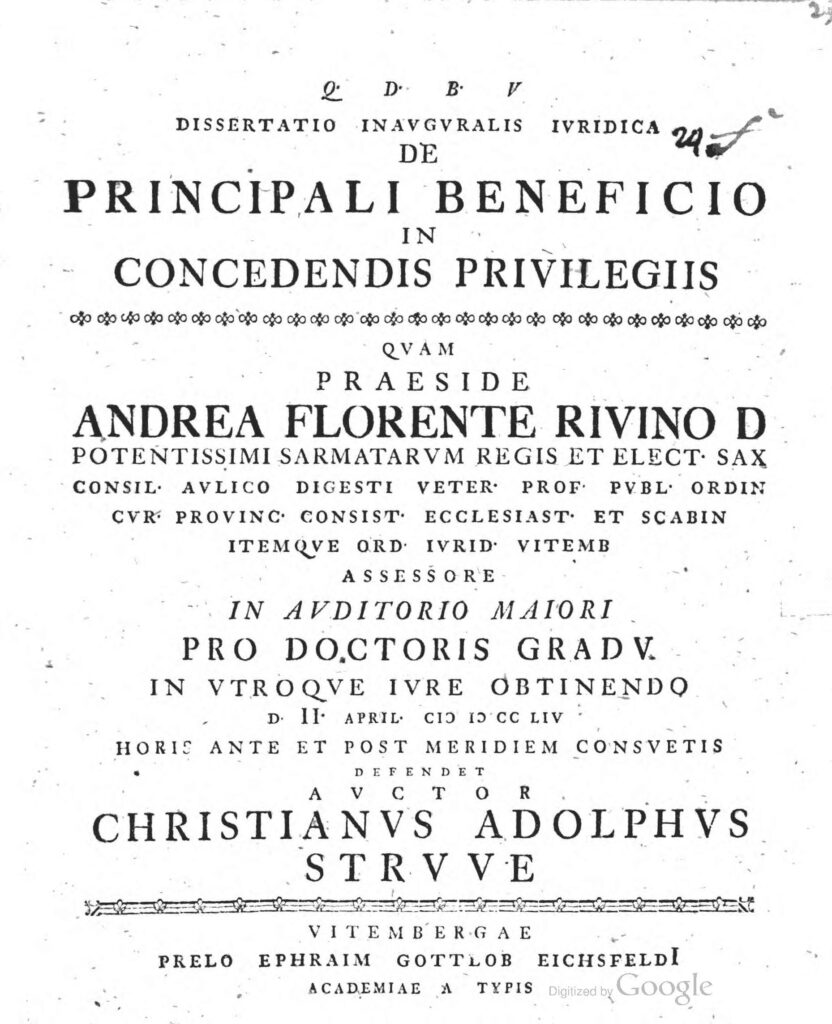
One other work that Christian Adolph put his name to was on the occasion of the death of Friedrich Caspar von Gerßdorff on July 16 1751, when an elaborate work, that included the von Gerdorffs’ portraits, was published under the title: Denkmahl der Liebe und Warheit Dem Weyl. Hochgebohrnen Grafen … Friedrich Casparn des H. R. R. Graf von Gerßdorff, Erb- Lehn- und Gerichts-Herrn auf Kaupe, Klix, Salge, Leichnam, Uhyst, Lippen, …
In 1776 a book was published in Struve’s honor: De feudis scultetorum commentatio … [Glueckwunsch für Christian Adolph Struve, 1776] Verf./Hrsg./Bearb.: Karl Ernst Hieronymus Struve Ort, Jahr: [S.l.], 1776 Umfang: 28 S. It was edited by Karl Ernst Hieronymus Struve who so far has not been identified on any genealogical database and was the son of Friedrich Christian Struve.
In another publication honoring his teacher Georg Venzky, Christian Adolph Struve gave an outline of his life written in Latin. We have Colin Goodwin to thank for this translation:
“ I, Christian Adolph Struvius, was born in Primislavia [?] in Marchia Ukerana Brandenburgica [Brandenburg, East Germany?]on the 26th July in the year of our Holy Redeemer 1723. I had as my father a most excellent, generous, and experienced person, namely Ernest Gothold Struvius, a Doctor of Medicine and, for the very powerful king of Borussia [?], Provincial Physician of the territory of Marchia Ukerana and Stolpirica, and renowned in the Academy of Natural Investigations – called the “Hipparchus” – in the same territory.
My mother was Dorothy Elisabeth Berchelmannia, daughter of a widely consulted barrister of law, Conrad Julius Berchelmannus, who was at one time Consul of the city of Brandenburg, and official property Assessor of that place.
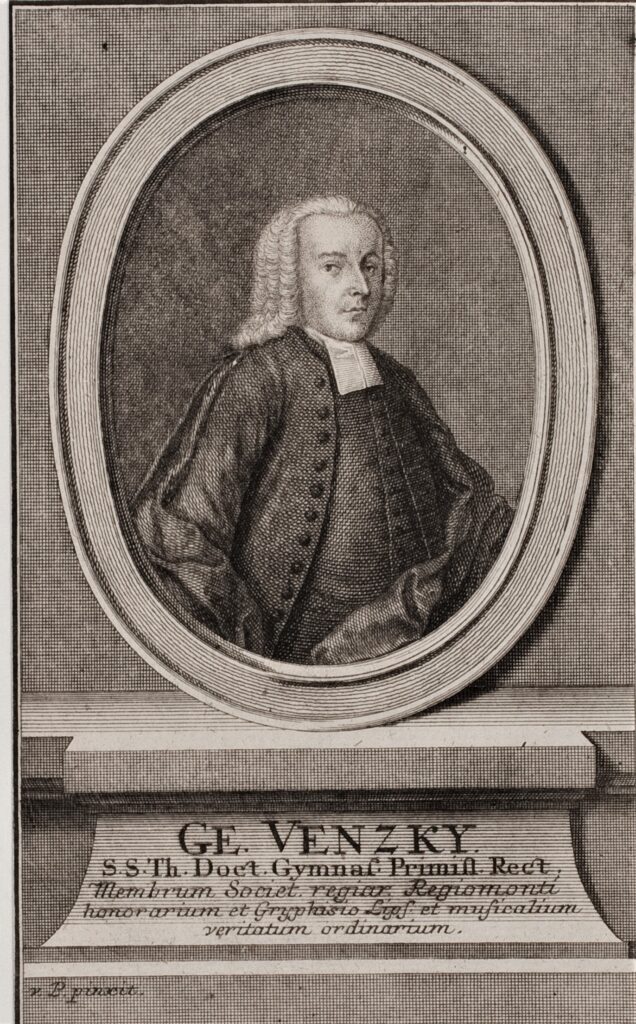
My paternal grandfather was the highly regarded George Adam Struvius, Private Counsellor of the illustrious Dukes of Saxony, Prefect of government business and assemblies, Assessor of judgments by princely courts, and Ordinary of the Faculty of Law at Jena. My grandmother was Susanna Berlichia, daughter of the famous Burchardus Berlichius, Counsellor and Private Secretary of the Principal Elector of Saxony.
I acknowledge as my great grandfather Bartholdus Struvius, in charge of the controlling and gathering of possessions for the illustrious Dukes of Saxony and the Administration of the Archbishop of Magdeburg.
My most dear parents were particularly solicitous that, having been brought into the community of Christians, I should from that time be rightly steeped in the precepts of pious devotion and of the best arts. To this end they took care to educate me, now sufficiently mature, in activities related to both home-based and public precepts; and not only to the doctrines of our most holy religion, but also to the disciplines by which someone of a young age is accustomed to be shaped towards full human stature. Hence you can understand that, from these early trials so to speak, I was sent in the year 1738 to a school which, linked to the Royal Pedagogical Institute of Halle, was flourishing. Next, I was called home from this school, although I had been there in the same school without interruption up until 1742, in order to bid a final farewell to my formerly most dear brother who, appointed State Counsellor and Planner of the great leader of the Russians and heir of the empire, was preparing his journey into Russia.
With Halle left behind, and having returned to the paternal hearth in Primislavia [?], and wishing to avoid a lack of cultivation of the mental powers, I attended for a whole year the philosophical lectures of George Venzky, Rector of the School of Philosophy of Primislavia [?], and now also a celebrated Doctor of Theology – a gentleman to be honoured by me for many reasons. With his assistance I even publicly defended a dissertation completed in March – a dissertation entitled ‘Concerning the Human Person Created for True Happiness’ – in the year 1743. Made ready by such forms of assistance, I transferred myself in the same year to the academy in Halle. In this most renowned domicile, as it were, of the fine arts, over and above the records of what has been achieved… “
